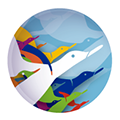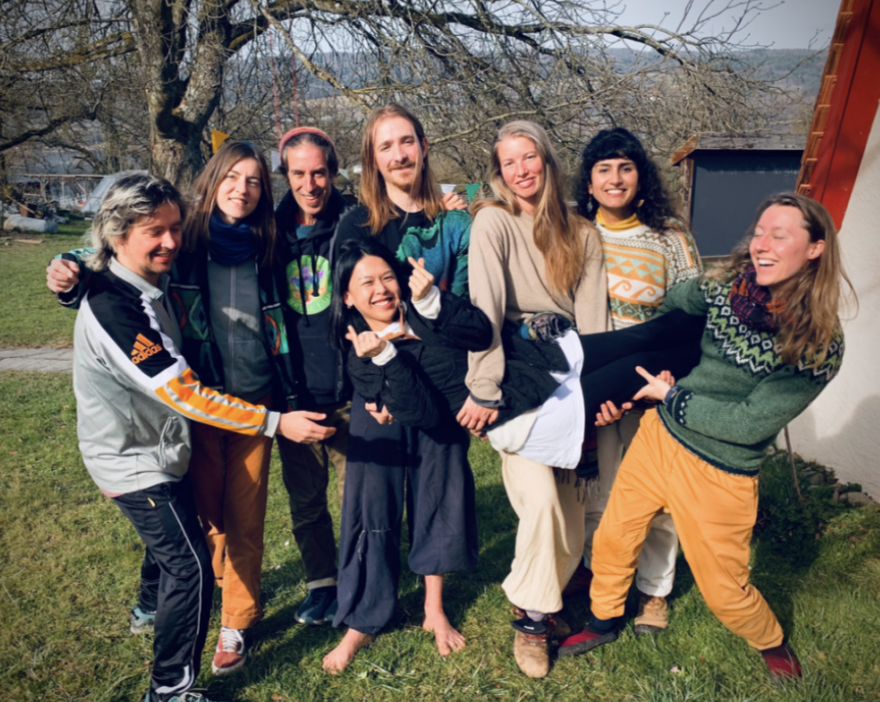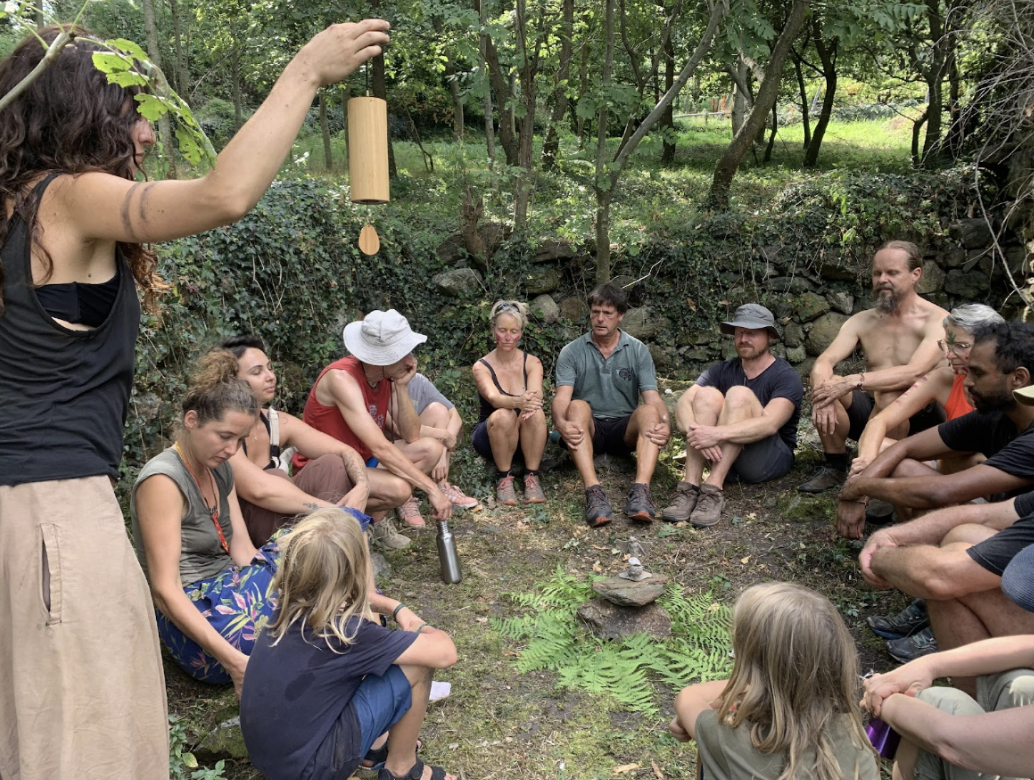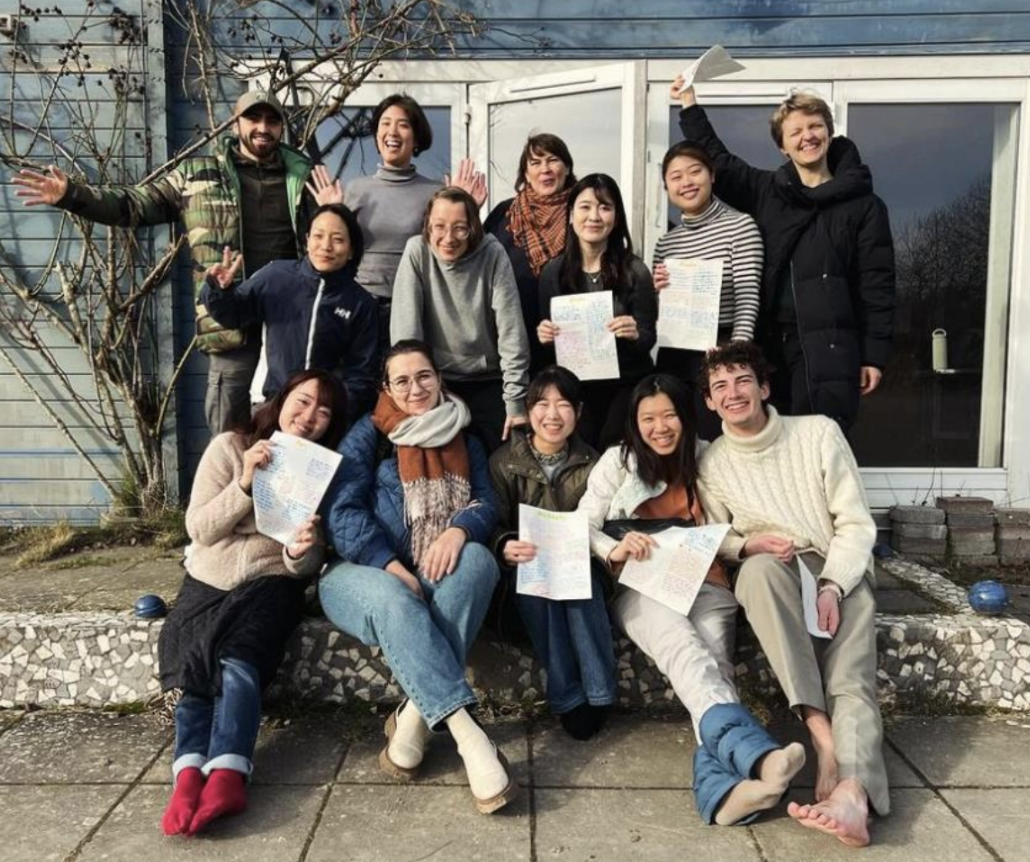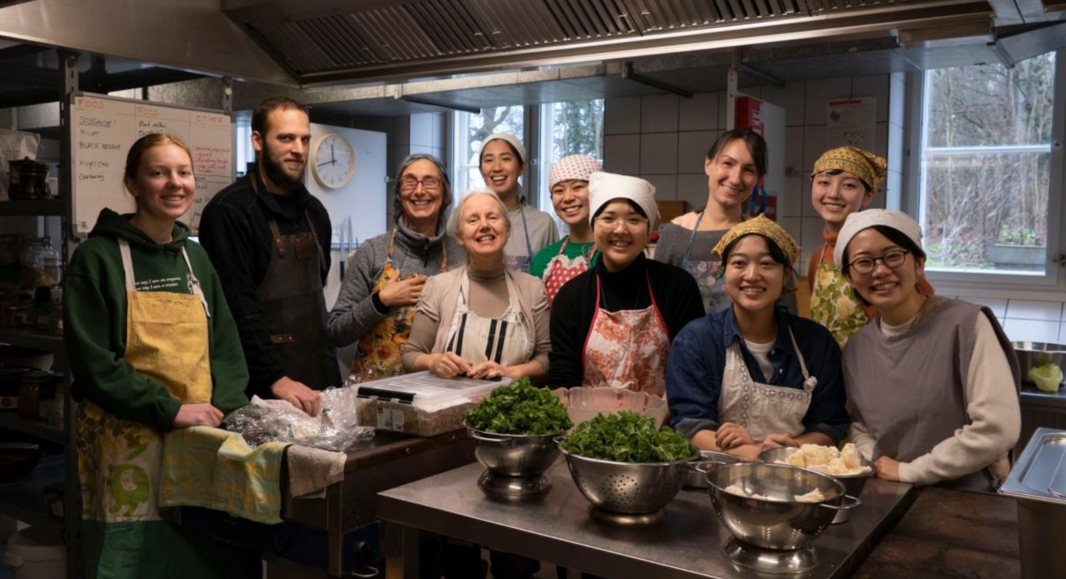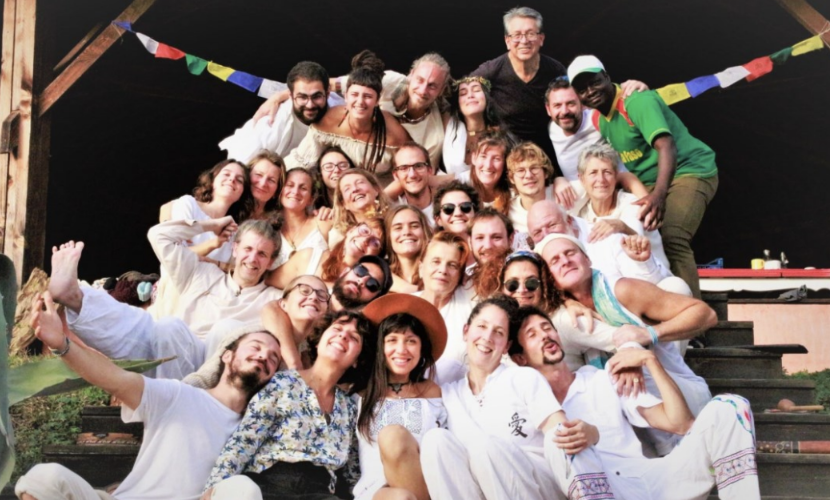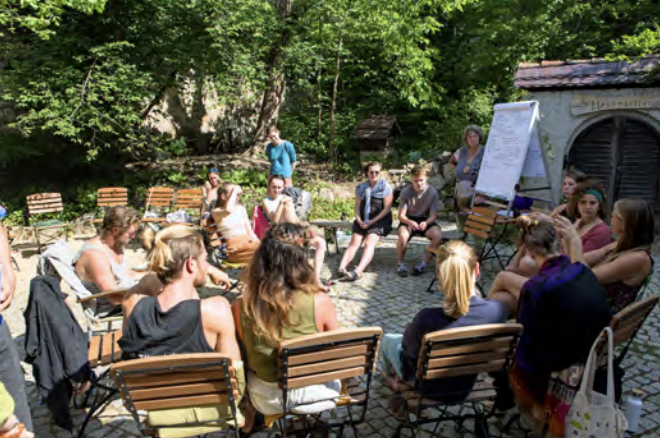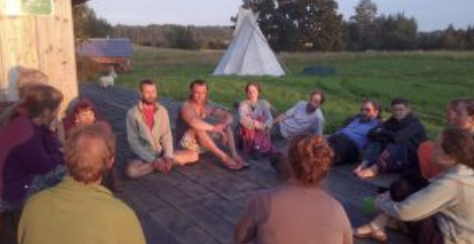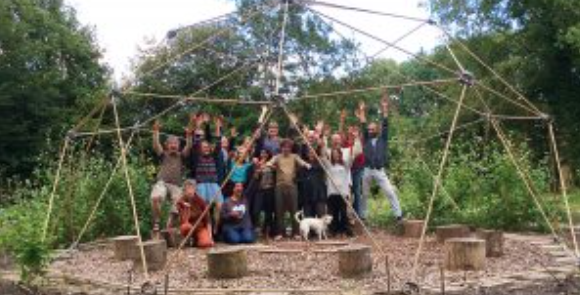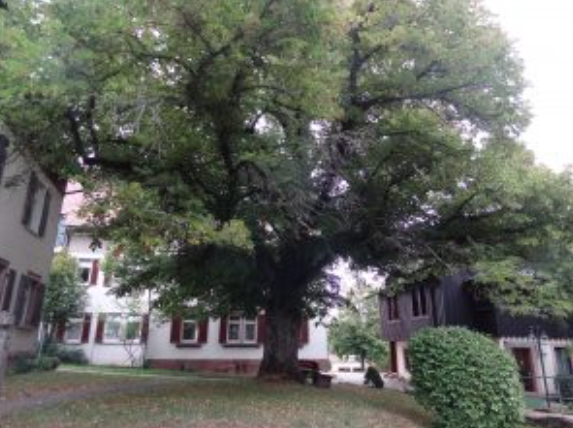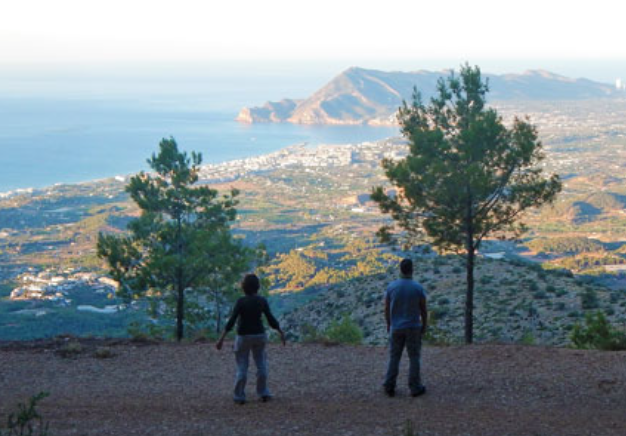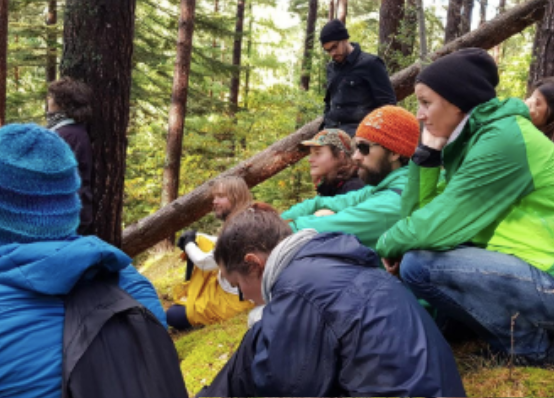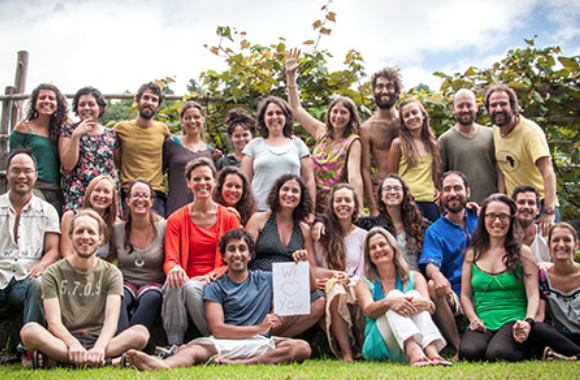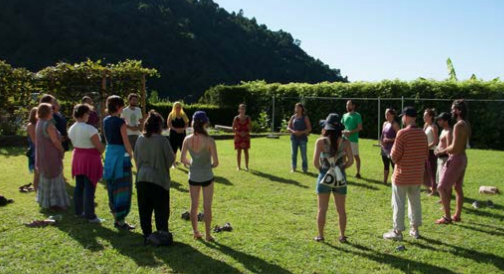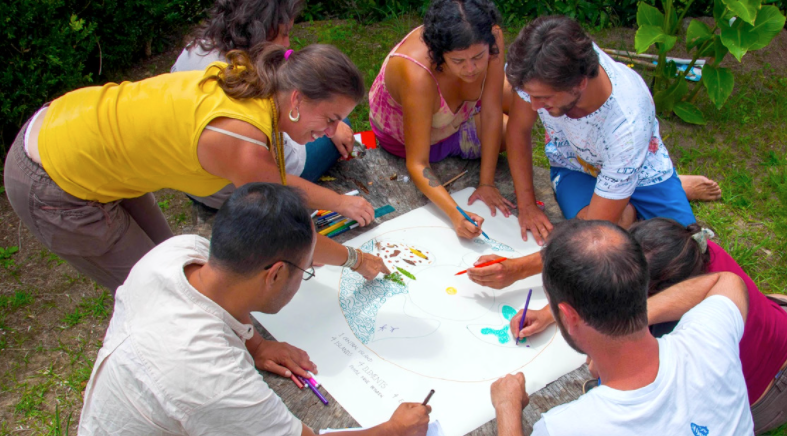EDE Report: Schloss Glarisegg
Switzerland 2024
The EDE Glarisegg 2024 took place the ecovillage Schloss Glarisegg for the 9th year. The program of EDE Glarisegg is based on the Gaia educational program and includes material that falls into the 5 dimensions of sustainability. There is a focus on the social and cultural/worldview aspects but at no point to the ecological or economic aspects get forgotten and all aspects inform everything that takes place during the EDE Glarisegg.
EDE Reports: Damanhur
Italy 2023
This year we are excited to share that we ran the 12th edition of the EDE at Damanhur, organized by the NGO Damanhur Education APS, in partnership with Gaia Education, the Global Ecovillage Network and Arca Tentyris APS.
EDE Report: SHE-EDE 2023
The She-Ede was a World Premiere program. A four weeks journey that had the objective to empower women, raise awareness and create future resilient communities inside the Ecovillage Design Education Model. Bringing together experience in ecovillage design, matriarchal societies, feminine wisdom, activism, community building and healing circles, a diversity of facilitatresses coming from Germany, Holland, Switzerland, Portugal and Italy created a new format of EDE – responding to the worldwide need of mutual female support and empowerment.
EDE Report: Avnø Højskole, Denmark
2024
During this course (January 4 - March 27, 2024), our students from Lithuania, Japan, Belgium had a
chance to
● become part of and experience the building of a living community with all its challenges and
opportunities — this is a learning experience that is not possible to go through in an already-established
community.
● be involved in designing and implementing minimum 7 different designs including ecovillage and
permaculture designs.
● meet people from all over the world – the community here is truly international consisting at the time
of the course of enthusiasts belonging to 10-12 different nationalities.
2023
Avnø Højskole is an integral part of the aspiring ecovillage, Avnø Oasis, which, in addition to the school, is in the process of developing several other projects including a cohousing community and green entrepreneurship since 2020. This multi-dimensional framework provides a profound learning environment in conscious and active interaction with people who are committed to being part of Earth's regeneration.
EDE Report: Sainte Camelle, France 2022
The EDE adventure continued in France for the second successive year!
In October 2022, 25 participants gathered in the ecovillage Sainte-Camelle to explore community living and a regenerative lifestyle – a deep, transformative, joyful and rich experience, at the heart of Life!
As an EDE team, we took this opportunity for a second edition to strengthen the foundations of the program in a French context and to take further steps towards enriching this transformative experience aiming for a regenerative culture.
EDE Reports: Schloss Tonndorf 2022
This Ecovillage Design Education was a 3-week residential training for 27 participants that took place in the picturesque Schloss Tonndorf ecovillage, located in and around a castle in the German state of Thuringia. It was the first EDE taking place in the community. The EDE was conceived, planned, organized and facilitated by an international team of trainers (Ana Armano Linta, Katja Štemberger, Mieke Elzenga, Thomas Meier, Veljko Armano Linta), in liaison with GEN Germany and the host community, whose member Thomas Meier was one of the ecovillage founders, Mieke Elzenga was the founder of the Liberterra community in the Netherlands and Veljko Armano Linta is a Gaia Education certified trainer.
EDE Reports: Estonia 2020
Gaia Academy is an education institution for holistic worldview and ways of life. Gaia Academy is part of Estonian Ecovillage Association and both are working together to contribute for sustainable development education. Gaia Academy offers different courses for adults, main course being the EDE.
Gaia Academy’s EDE courses are organized in close cooperation with Small Footprint and other communities in Estonia.
As our modules are held in different places around Estonia, it allows more possibility for participants to join from different parts as well. Every year, each course is different whereas the age differs from youth (ca 25 y.o.) to rather experienced people (age ca 60 years). It enriches the course as youth have new perspectives and older ones their wise experience.
EDE Reports: Netherlands 2020
EDE 2020 was organised by Gaia Nederland and Algoed Estate and supported by Gaia Education, with the team of Monica and Henk Petter and Hugo Schönberck of Gaia Nederland as experienced organisers and Angelien Hoppen was Algoed Estate’s liaison to the EDE group.
This year’s host site, the Algoed Estate is situated near Enschede, in the east of the Netherlands, close to the German border. Having been in operation as a social project for more than twenty years, the Algoed farm combines a number of buildings, a camping site, several food and permaculture gardens, meadows and some forest land totalling nearly 50,000 sqm.
EDE Reports: Wandelreise 2020
Wandelreise is a holistic lifelong learning place, they develop practical and sustainable answers to the global challenges of our time. This open learning workshop is embedded in a community that lives permanently on site.
EDE Report: Altea
Spain 2018
In May 2018, a group of facilitators conducted an introductory 4-day course for educators in Altea, Valencia in Spain. The course dealt with the themes and practices of forest therapy, reconnecting with nature, forest schools, and human development through different tools, such as the social dimension of the Gaia Education curriculum.
EDE Report: Findhorn Foundation College
Scotland 2018
In 2018 many of the participants were themselves Educators. EDE is promoted as a course for beginner to intermediate participants, however, in part due to the Gaia Education trainer track we had some participants who had completed the GEDs and the TOT and in other cases we had people who were already quite advanced in their knowledge relating to the EDE Wheel of Sustainability.
EDE Report: Azores
Portugal 2012
The EDE Azores took place on São Miguel island in Portugal, an island where plants grow verdantly out of the volcanic soil, where the air is fresh and clean, where people live naturally in community and the ocean is alive with dolphins and whales. Our course was located in Sanguinho - a tiny village usually reached by foot through a steep trail winding past Kahili ginger flowers, junipers, banana trees, Japanese cryptomerias, ginkgo biloba and acacia trees. Our course took 5 weeks and it had 21 participants - 14 women and 7 men - who were between 17 and 48 years old and were coming from Portugal, many European countries, South & North America, Israel, and New Zealand.
What is an EDE (Ecovillage Design Education programme)?
Ecovillage Design Education programmes, often referred to as ‘EDEs’, take place in 50 countries in settings ranging from tribal and traditional communities to intentional ecovillages, from urban slums to universities and training centres. The duration of these programmes are around 125 hours over a full month, although this may vary slightly depending on where and when they are taken. The EDEs provide participants of all ages with the knowledge and practical skills to design a society which uses energy and materials with greater efficiency, distributes wealth fairly and strives to eliminate the concept of waste.
How to run an EDE
Several of our EDE graduates have carried on organising EDE programmes in their local areas, and you are warmly encouraged to do so after completing your course.
The recommended time frame of an EDE is four weeks, however this is not fixed and varies with each individual programme.
The material can be condensed into smaller workshops, spread out over a longer period, or distributed in blocks at different times and locations.
